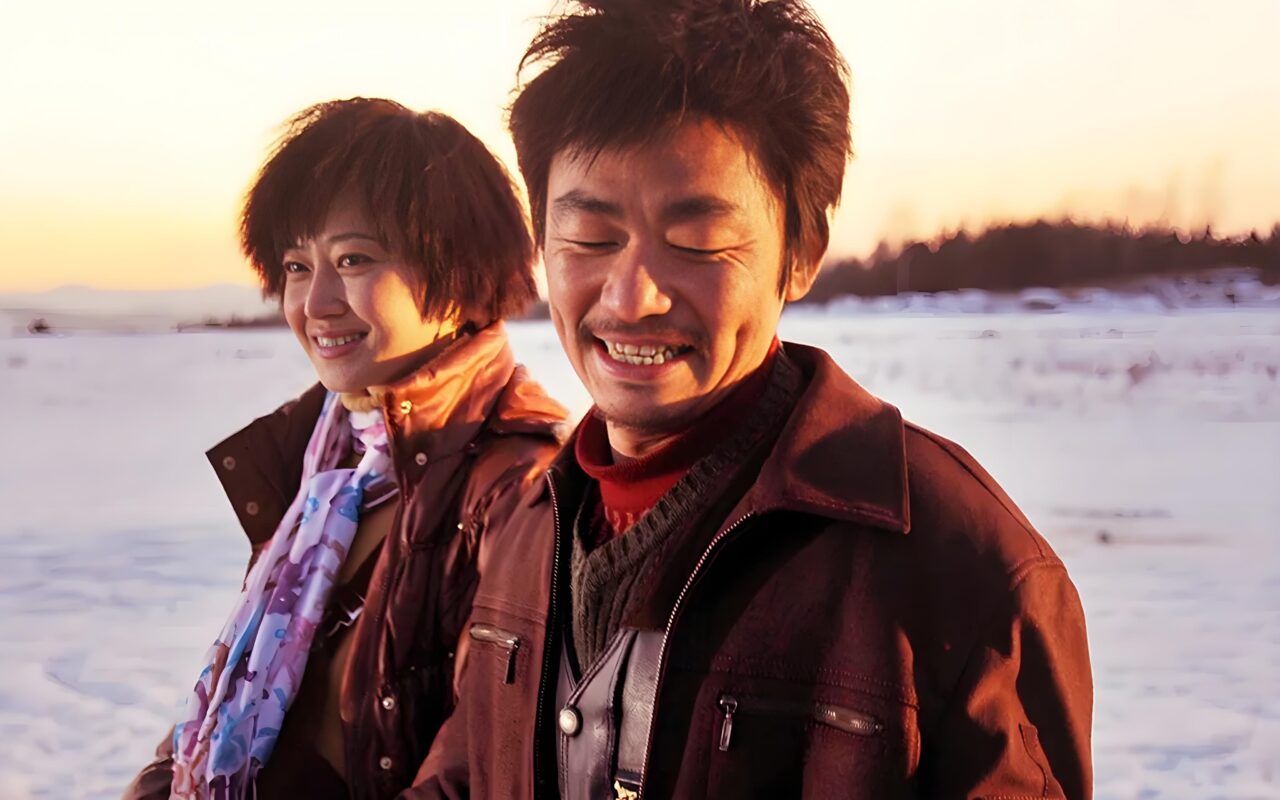Introduction: A Cinematic Exploration of Rural China
Keyword: Realism
Mr. Tree (Hello! 树先生), directed by Han Jie and released in 2011, is a critically acclaimed Chinese film that delves into the complexities of rural life and the human psyche. Starring Wang Baoqiang in a career-defining role, the movie is a poignant exploration of realism, blending social commentary with surreal elements to create a haunting and thought-provoking narrative. Set in a small, impoverished village in northern China, the film follows the life of Shu, a socially marginalized man struggling to find his place in a rapidly changing world.
The film’s unique storytelling and visual style have earned it widespread recognition, including the Best Actor award for Wang Baoqiang at the Shanghai International Film Festival. Through its unflinching portrayal of rural life and its exploration of themes like alienation, identity, and mental health, Mr. Tree stands as a powerful testament to the transformative power of cinema.
Plot Overview: The Struggles of Shu, the “Tree Man”
Keyword: Alienation
At the heart of Mr. Tree is the story of Shu, a man nicknamed “Tree” due to his habit of leaning against trees while lost in thought. Shu’s life is marked by alienation—he is ostracized by his community, mocked by his peers, and haunted by the traumatic death of his father and brother. The film portrays his descent into a fractured reality, where the lines between dreams and waking life blur, reflecting his deteriorating mental state.
Shu’s journey is punctuated by moments of dark humor and surreal imagery, such as his visions of his deceased father and brother, which serve as metaphors for his inner turmoil. As the story progresses, Shu’s attempts to assert his dignity and find meaning in his life become increasingly desperate, culminating in a tragic yet poetic resolution. Through its portrayal of Shu’s alienation, Mr. Tree offers a profound commentary on the human condition and the societal forces that shape our lives.
Themes and Symbolism: A Deep Dive into the Human Psyche
Keyword: Identity
One of the central themes of Mr. Tree is the search for identity in a world that often marginalizes the vulnerable. Shu’s struggle to define himself in the face of societal rejection and personal trauma is a recurring motif throughout the film. His interactions with the villagers, who alternately pity and ridicule him, highlight the fragility of his sense of self.
The film also employs rich symbolism to explore its themes. The recurring image of trees, for instance, represents Shu’s longing for stability and connection, while the barren, snow-covered landscape of the village mirrors his emotional isolation. Additionally, the surreal sequences, such as Shu’s visions of his father and brother, serve as windows into his subconscious, revealing the deep-seated fears and desires that drive his actions. Through its exploration of identity and symbolism, Mr. Tree invites viewers to reflect on the complexities of the human experience.
Cinematic Style: Blending Realism and Surrealism
Keyword: Innovation
Mr. Tree is celebrated for its innovation in blending realism with surrealism, creating a unique cinematic language that enhances its emotional impact. Director Han Jie employs a muted color palette and naturalistic lighting to capture the bleakness of rural life, while the use of handheld cameras adds a sense of immediacy and intimacy to the narrative.
The film’s surreal elements, such as Shu’s hallucinations and dream sequences, are seamlessly integrated into the story, blurring the boundaries between reality and imagination. This stylistic choice not only reflects Shu’s psychological state but also challenges viewers to question their own perceptions of truth and illusion. Through its innovative approach to storytelling and visual style, Mr. Tree pushes the boundaries of Chinese cinema, offering a fresh and compelling perspective on social realism.
A Visual and Emotional Journey
The film’s cinematography, led by Yu Lik-wai, plays a crucial role in conveying its themes and emotions. The stark contrast between the desolate village and the surreal dreamscapes creates a visual tension that mirrors Shu’s inner conflict. The use of long takes and close-ups further immerses the audience in Shu’s world, allowing them to experience his isolation and despair firsthand. This masterful blend of visual and narrative techniques makes Mr. Tree a truly immersive and unforgettable cinematic experience.
Cultural and Social Context: A Reflection of Rural China
Keyword: Marginalization
Mr. Tree is deeply rooted in the social and cultural context of rural China, offering a stark portrayal of the marginalization faced by individuals like Shu. The film highlights the economic and social disparities that plague rural communities, where traditional values clash with the forces of modernization. Shu’s struggles are emblematic of the broader challenges faced by those left behind in China’s rapid development, from unemployment and poverty to the erosion of community ties.
The film also critiques the societal attitudes that perpetuate marginalization, such as the villagers’ indifference to Shu’s plight and their tendency to exploit his vulnerability. Through its unflinching depiction of these issues, Mr. Tree serves as a powerful commentary on the human cost of progress and the need for greater empathy and understanding. By shedding light on the realities of rural life, the film challenges viewers to confront the systemic inequalities that shape our world.
A Timeless and Universal Story
While Mr. Tree is firmly grounded in the context of rural China, its themes of alienation, identity, and mental health resonate on a universal level. The film’s exploration of the human psyche and its critique of societal norms transcend cultural boundaries, making it a timeless and relevant work of art. Through its poignant storytelling and social commentary, Mr. Tree invites audiences to reflect on their own lives and the world around them.
Mr. Tree (Hello! 树先生) is a cinematic masterpiece that combines social realism with psychological depth to create a haunting and thought-provoking narrative. Through its exploration of themes like alienation, identity, and marginalization, the film offers a profound commentary on the human condition and the societal forces that shape our lives. Its innovative blend of realism and surrealism, coupled with Wang Baoqiang’s unforgettable performance, makes it a standout work in contemporary Chinese cinema.
By shedding light on the struggles of rural China and the universal quest for meaning and connection, Mr. Tree challenges viewers to confront the complexities of the human experience. Through its powerful storytelling and visual artistry, the film leaves a lasting impression, reminding us of the transformative power of cinema to illuminate the darkest corners of our world.

